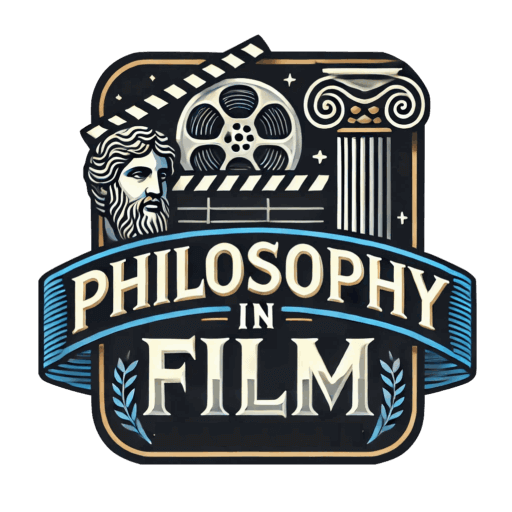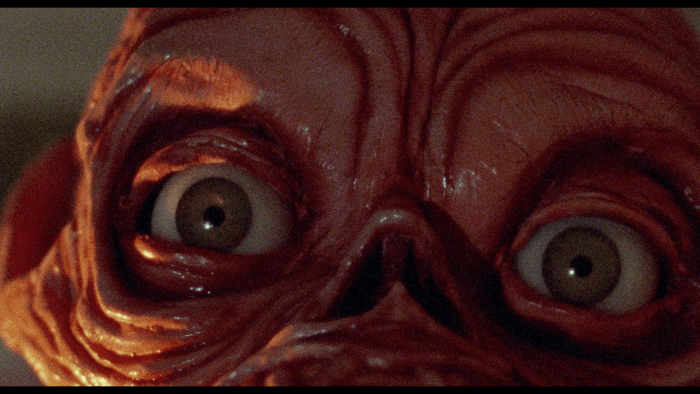Review: The Suckling (1990) ★
Whenever B-movie horror directors want to make a point, it’s usually not a very good one. The metaphors possess little nuance, so that even the audience member who’s not paying attention can still follow along. Moreover, certain low-budget horror films do something very strange: the content is abhorrent to a more traditionally-minded viewer, while also relying heavily on reactionary themes. In Francis Teri’s The Suckling (1990), we are given an anti-abortion horror film that even anti-abortion groups would likely hate.
The Suckling (sometimes referred to as Sewage Baby) opens with a rather lengthy introductory text:
“On April 1st, 1973 the most bizarre and macabre event in all of Brooklyn’s modern history occurred. Twelve people, inhabitants of a reputed house of prostitution and an illegal abortion clinic were killed. Only one occupant survived. When found by the police, she told a tale so fantastic and horrific, she was believed to be insane. Authorities immediately placed her in an insane asylum. The most brilliant investigators spent years trying to solve this gruesome mystery…but to this day, they are still baffled. Could the rantings of a girl, supposedly insane, be true? The makers of this film believe so.”
It’s not uncommon for indie horror films to exaggerate their “based on true events” claim, but this effort feels particularly half-hearted. In any case, we are then introduced to the woman mentioned above, who now lies in the hospital suffering from nightmarish visions. For some reason, two doctors then summarize the plot for us one more time, before we jump back to the events of the previous week.
Though she is apprehensive, the woman goes to a back-alley abortion clinic with her boyfriend. The clinic doubles as a seedy brothel, just to emphasize how nefarious it is to get an abortion or be a sex worker. The woman wants to give birth and put the baby up for adoption, but her boyfriend insists that they go through with the abortion.
The couple then meets the abortionist/madam of the house, a woman known as “Big Mama.” Everything seems to go according to plan, but when one of the prostitutes flushes the aborted fetus down the toilet, it comes into contact with radioactive slime, transforming it into a fanged monster (aka The Suckling). The couple, as well as the other occupants of the brothel, find themselves trapped inside, fighting for their survival against the seemingly invincible baby monster.

Aside from a few halfway decent creature effects, there’s really nothing that makes The Suckling remotely watchable. At times, the script (written by Francis Teri) is laughably bad, and the actors don’t help much. Like many indie horror films of the 80s and 90s, every character is a two-dimensional archetype. To make matters worse, you can tell that some scenes were just thrown in at random, simply because they had taken the time to film them and didn’t want anything to go to waste. As a result, we’re left with a story that barely makes sense, interspersed with random cutaway scenes that make it even less cohesive.
Whether or not you can take the anti-abortion elements seriously depends on whether you view The Suckling as a self-aware send-up of the genre or a legitimate horror film. If The Suckling is, in fact, a spoof, it’s not a very good one, and if it’s meant to be taken seriously as a horror film, it’s even worse.
In many horror films, sex is used to drive home a similar point (to much greater effect), but in The Suckling, abortion is the primary source of violence and pain. Based on the poor writing, I don’t think the filmmakers intended this message to be ironic in any way. Instead, The Suckling is just a bad movie with a bad message: abortion is terrible, and if you get one, you and all your friends will die a gruesome death.
Having said that, The Suckling might have some limited appeal among those who love watching terrible B-movies. While I generally fit into this category, The Suckling did not entice me at all. Visually, the film is muddy and ugly to watch. Most of the story takes place in the same unattractive setting, with limited props and poor lighting.
The Suckling is Francis Teri’s only film, which is an unfortunate legacy. In a sense, Teri should count himself lucky that his direction is almost non-existent; The Suckling plays like a movie a group of friends might make over the course of a long weekend. The acting and writing are both abysmal, and the story is downright offensive, even if it’s not meant to be taken seriously. In short, I wish I could get the hour-and-a-half of my life back.
Rating: ★ out of 5
If you’d still like to watch The Suckling (1990), though I don’t recommend it, the film is currently available to rent or purchase via Amazon here.

